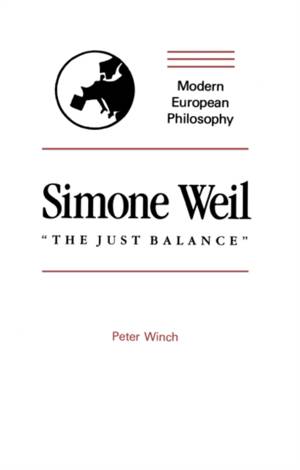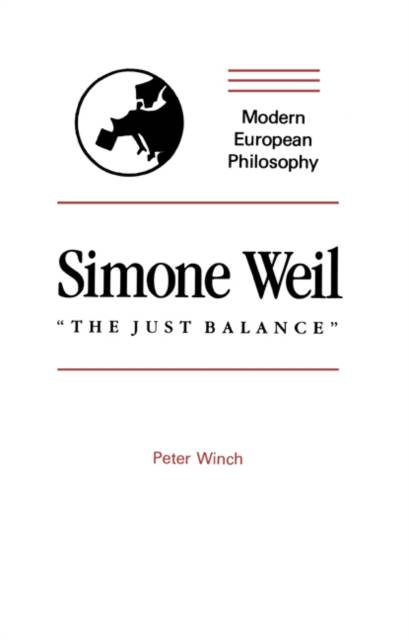
- Afhalen na 1 uur in een winkel met voorraad
- Gratis thuislevering in België vanaf € 30
- Ruim aanbod met 7 miljoen producten
- Afhalen na 1 uur in een winkel met voorraad
- Gratis thuislevering in België vanaf € 30
- Ruim aanbod met 7 miljoen producten
Zoeken
€ 58,45
+ 116 punten
Omschrijving
This book examines the religious, social, and political thought of Simone Weil in the context of the rigorous philosophical thinking out of which it grew. It also explores illuminating parallels between these ideas and ideas that were simultaneously being developed by Ludwig Wittgenstein. Simone Weil developed a conception of the relation between human beings and nature which made it difficult for her to explain mutual understanding and justice. Her wrestling with this difficulty coincided with a considerable sharpening of her religious sensibility, and led to a new concept of the natural and social orders involving a supernatural dimension, within which the concepts of beauty and justice are paramount. Professor Winch provides a fresh perspective on the complete span of Simone Weil's work, and discusses the fundamental difficulties of tracing the dividing line between philosophy and religion.
Specificaties
Betrokkenen
- Auteur(s):
- Uitgeverij:
Inhoud
- Aantal bladzijden:
- 248
- Taal:
- Engels
- Reeks:
Eigenschappen
- Productcode (EAN):
- 9780521317436
- Verschijningsdatum:
- 31/03/1989
- Uitvoering:
- Paperback
- Formaat:
- Trade paperback (VS)
- Afmetingen:
- 214 mm x 146 mm
- Gewicht:
- 322 g

Alleen bij Standaard Boekhandel
+ 116 punten op je klantenkaart van Standaard Boekhandel
Beoordelingen
We publiceren alleen reviews die voldoen aan de voorwaarden voor reviews. Bekijk onze voorwaarden voor reviews.











